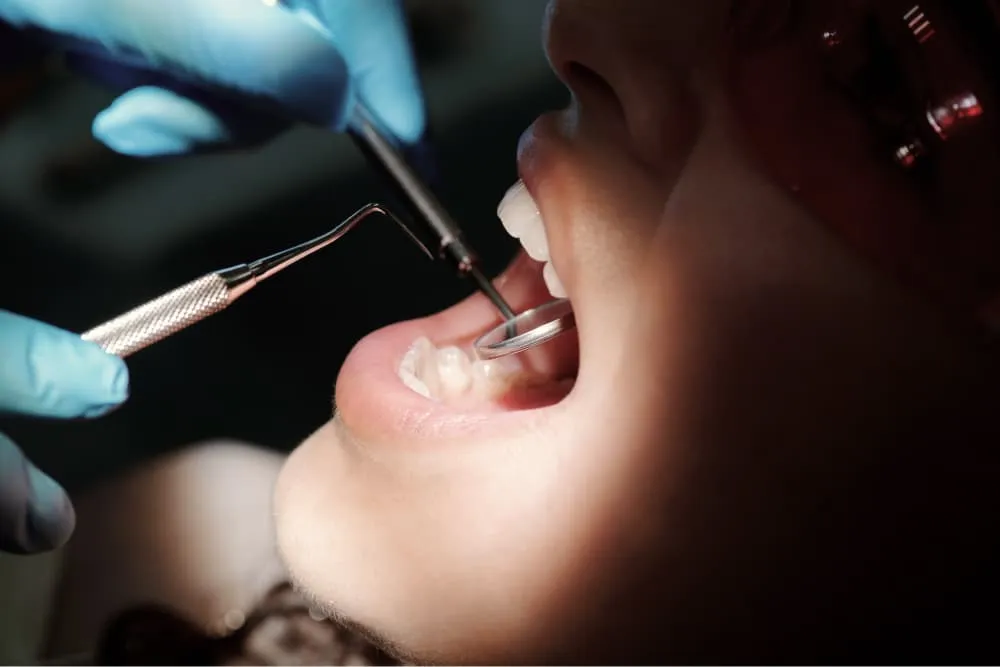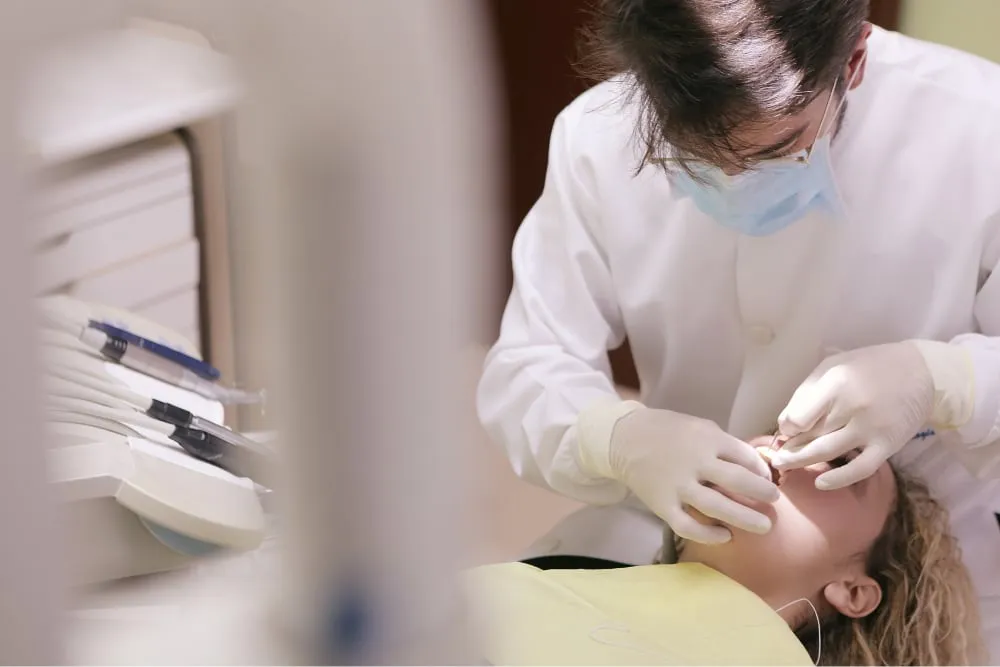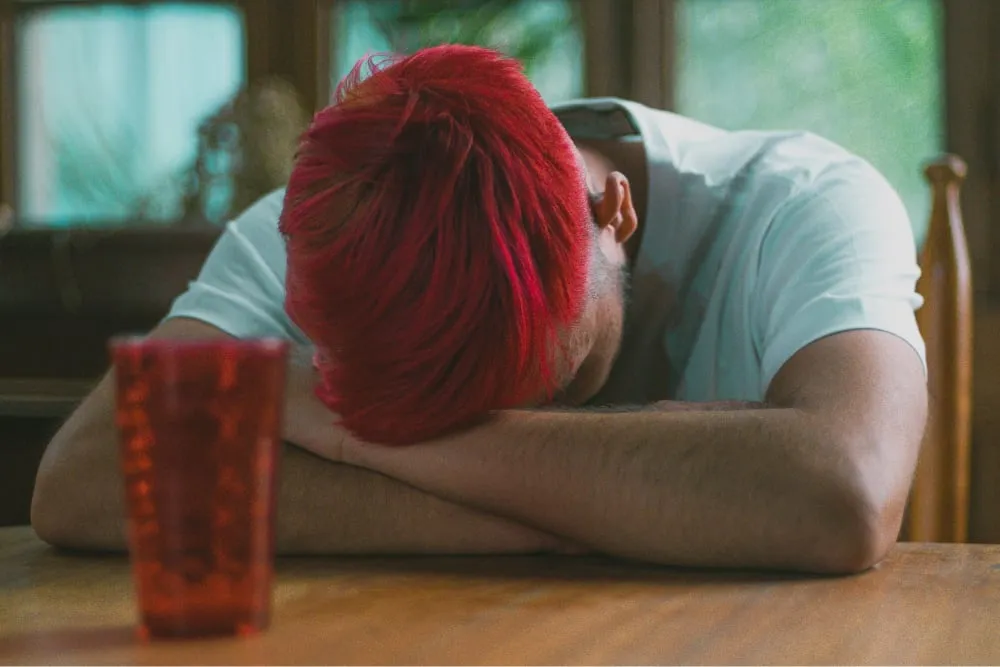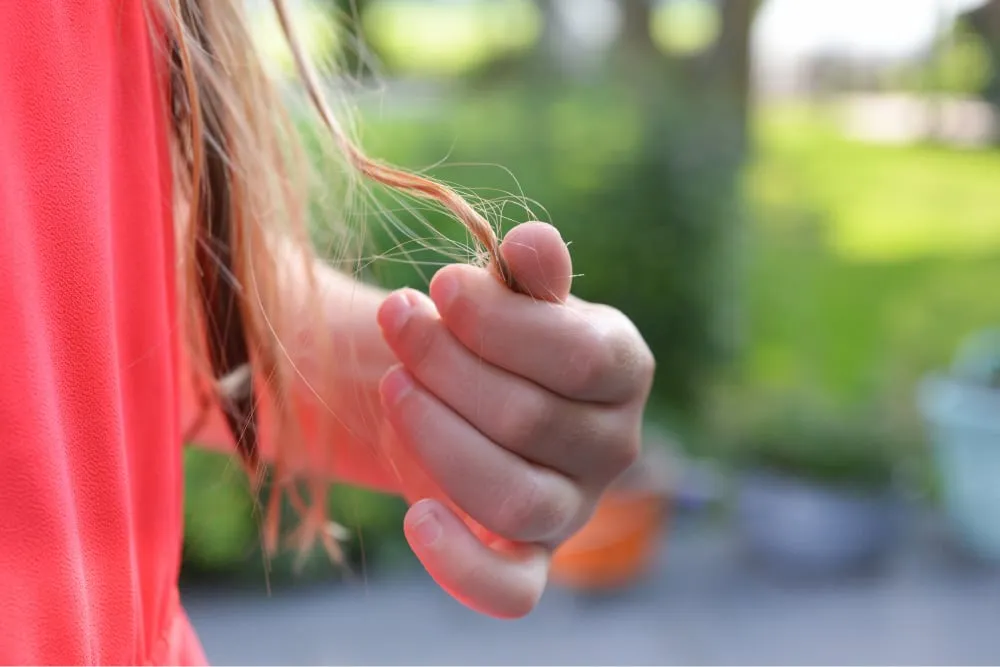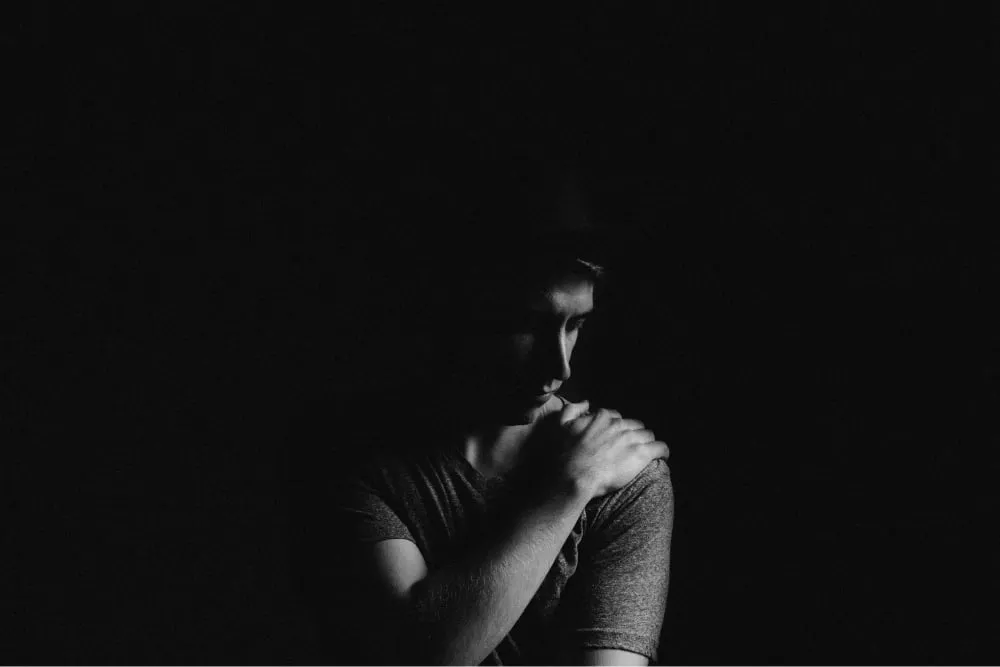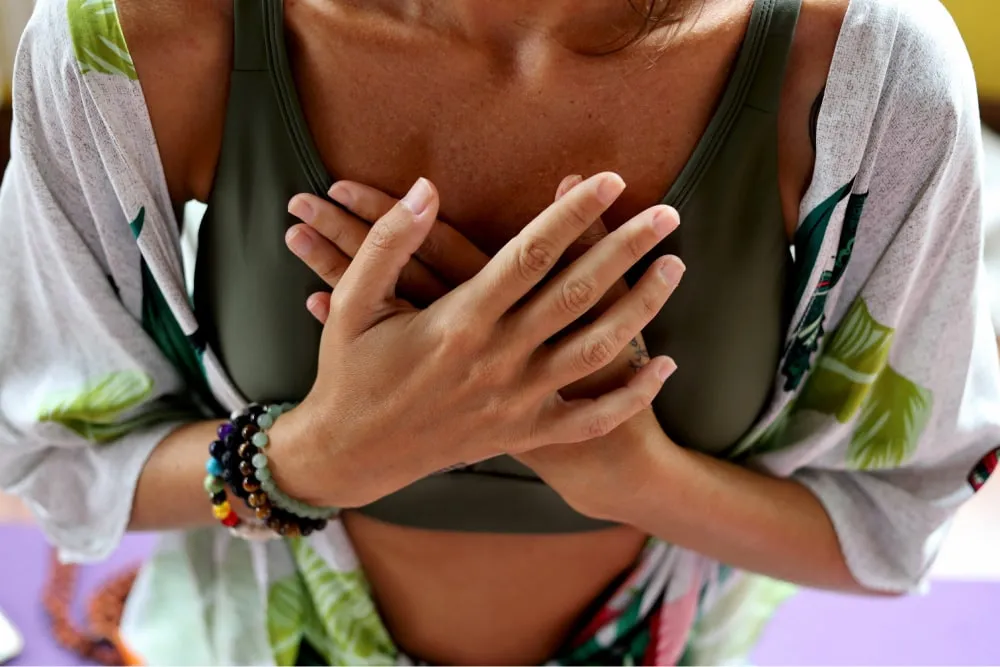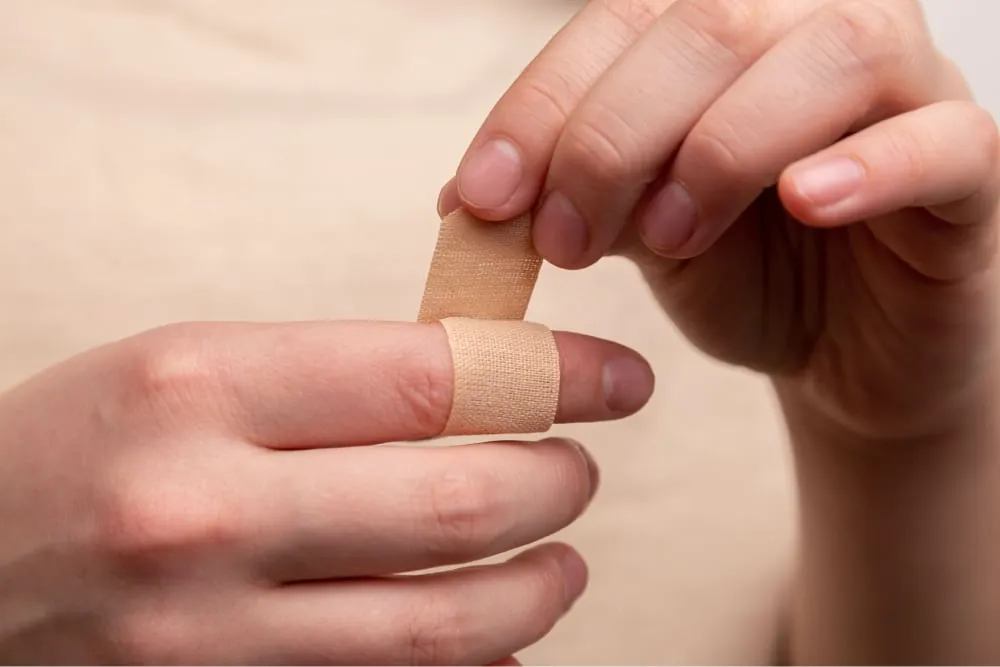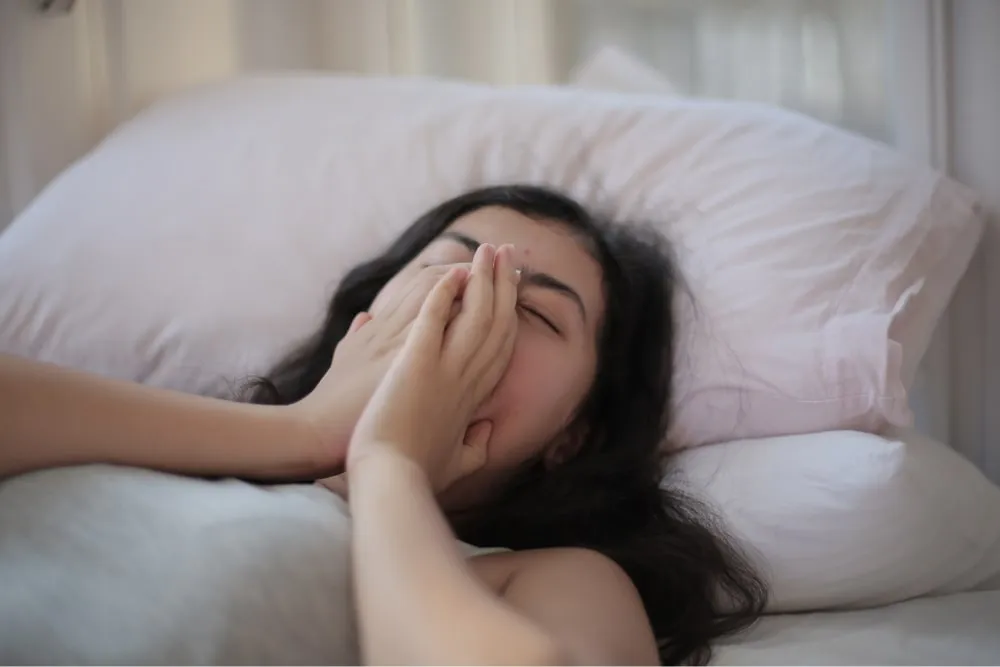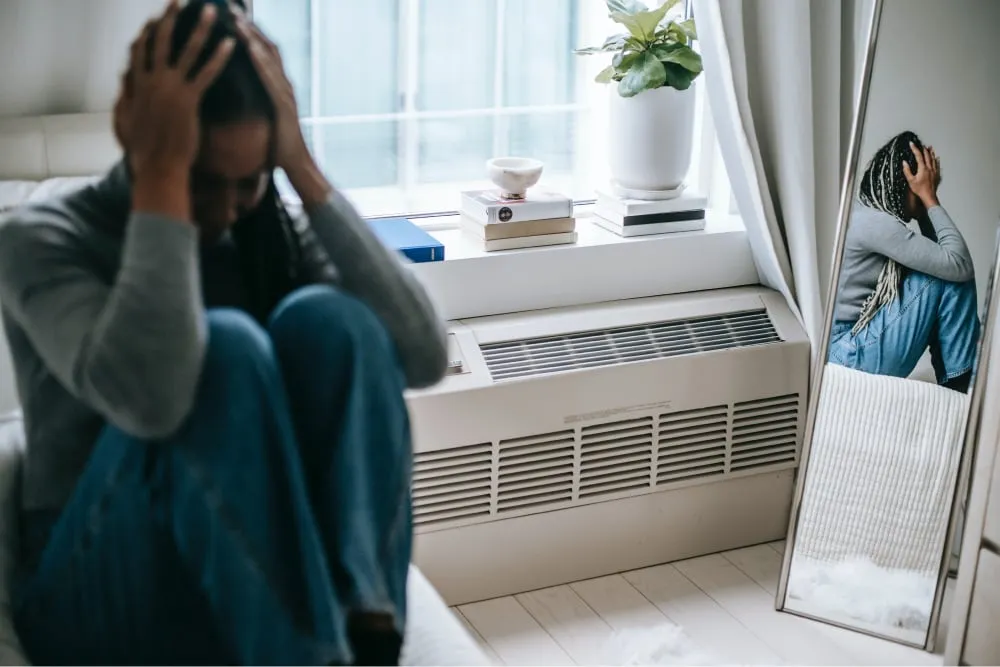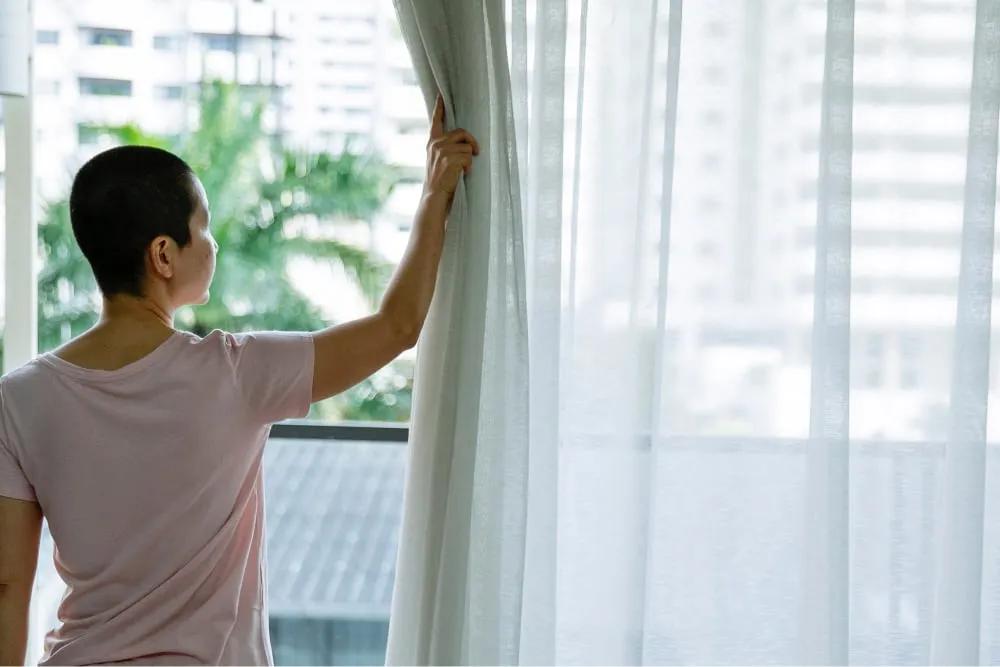How does bulimia affect the skin?
Bulimia can have several side effects on the integumentary system, or the internal system that regulates skin, hair, and nails, including:1
- Brittle and dry hair and nails
- Infections around the nails and cuticles
- Discoloration of the extremities from poor circulation
- Russell’s sign (calluses on the knuckles from repeated induced vomiting)
- Abnormally dry skin and membranes
- Slow wound healing
- Hyperpigmentation
- Fine body hair (lanugo)
- Acne
That's because the eating disorder behaviors associated with BN, including self-induced vomiting and other maladaptive coping mechanisms, can trigger hormonal changes, weight loss, and other issues that impact the skin.
Self-induced vomiting and other maladaptive coping mechanisms, can trigger hormonal changes, weight loss, and other issues that impact the skin.
Bulimia and acne
The frequent vomiting often associated with BN can result in dehydration and excessive dryness of the skin. This, in turn, can lead to acne development.
After 2-4 weeks of this type of malnutrition-driven dehydration, the skin will start to produce less surface lipids, and sebum, or oil, production can decrease by as much as 40%.2
And while acne is often associated with skin that is too oily, dry skin can also lead to this skin condition, in several ways:
- By causing an excess of dead skin cells, which clogs the pores
- By making pores more likely to break open, allowing acne-causing bacteria to penetrate deeply into the skin
- By triggering the production of excess sebum, or oil
Certain vitamin and mineral deficiencies are also common among people who have acne, including deficiencies in zinc and vitamins A and E and some forms of vitamin D.4,7
While all are essential for bodily functions—and vitamin A and E, particularly, are full of helpful antioxidants—the connection between the levels of these minerals and the propensity to develop acne are unclear. Though, researchers recommend diets rich in these vitamins and nutrients to help combat skin issues. (3)
Treatment for bulimia acne
When dealing with any kind of issue connected to eating disorders, treatment of the underlying eating disorder is often the best way to resolve the problem. This includes skin issues connected to bulimia nervosa.2
Recovery from BN is often a long journey, and not always one that occurs in a straight line. Some patients experience additional acne breakouts, even after starting treatment, and need clinical dermatology to help clear things up.
But, in general, there are ways someone can help heal stressed, acne-prone skin during the recovery process.
Leave your skin alone
It can be tempting to pop, squeeze, or pick at your acne, but doing this will make it harder to let the skin heal, and may also result in acne scars. Plus, touching your face frequently can transfer bacteria to your skin, causing new flare-ups.
4Obsessive-compulsive tendencies often go hand-in-hand with BN and can compel repetitive behaviors like this. But the right treatment approach to bulimia nervosa can also help break the unhelpful habits that accompany the eating disorder.
Find the right treatment
While acne can be distressing to deal with, it’s also, generally, relatively easy to treat.
A combination of systemic and topical antibiotics can be used to help balance skin hormones and other internal elements that lead to breakouts. It’s possible to combine these treatments with benzoyl peroxide and retinoids, though experts recommend only to use this treatment for a maximum of 12 weeks.5
In severe cases, additional treatments may be available. It’s important to consult with your doctor or dermatologist before introducing any of these products into your skincare routine.
See a dermatologist
A dermatologist can be a key member of a treatment team for those in bulimia recovery.6 These specialists can identify the skin problems resulting from disordered eating behaviors, determine whether your skin barrier is damaged through nutrient deficiencies, such as a zinc deficiency, and recommend an appropriate course of treatment. This can include topical creams, gels, or lotions, oral medications, or dietary supplements, as well as a skincare regimen.
Skin care tips
Acne isn't the only skin condition that can cause serious damage. But there are steps you can take to help pamper and maintain the body's largest organ.
Never skip sunscreen
Some of the active ingredients in acne treatments, such as benzoyl peroxide and salicylic acid, can make skin more sensitive to the sun. So it’s important to apply sunscreen with at least SPF 30 every day.4 Sunscreen will also help reduce inflammation and pigmentation marks left behind by acne.
Repair the skin barrier
Be kind to your skin. If it’s dry and dehydrated, you will irritate it further with abrasive scrubs, exfoliants, cleansers, or harsh astringents. These can all strip the skin of its natural moisture.
Other things you can do to repair the skin barrier include:
- Avoiding scrubbing the skin
- Applying products with your fingertips
- Using gentle, alcohol-free products to avoid further drying out the skin
- Washing and rinsing with lukewarm water
- Applying a light non-comedogenic moisturizer after cleansing
- Choosing products with soothing and hydrating ingredients, such as hyaluronic acid, niacinamide, and ceramides
- Drinking plenty of water to stay hydrated
Getting Treatment
The best option for overcoming bulimia nervosa, and any of the skin problems it may cause, is a comprehensive treatment plan. With a multidisciplinary team of professionals, you can find help with all aspects of this eating disorder.
Get a free consultation
At Within Health, we know how hard it can be to ask for help, but it’s the first step toward a healthy relationship with food and your body. And we are here for you, to give you the guidance and support you need every step of the way. Call our team to learn about our attuned approach to treatment.
Call (866) 293-0041 








